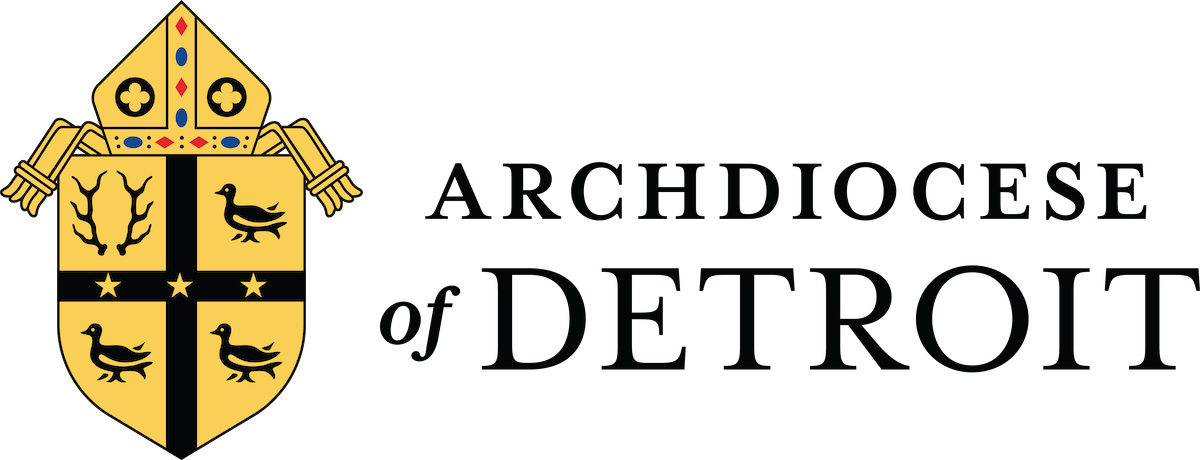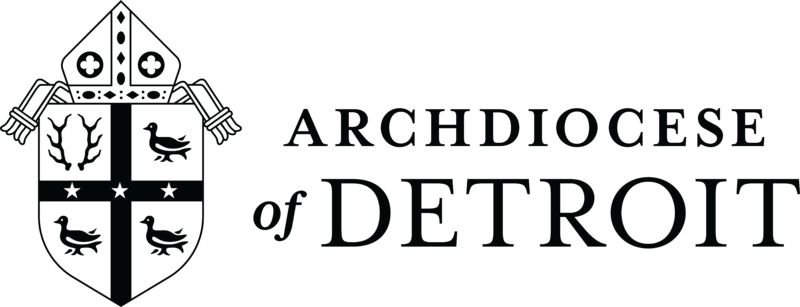Archdiocese of Detroit announces parish groupings for Family of Parishes, in next step in renewing local Church for mission to unleash the Gospel
December 9, 2020 — After six months of prayerful discernment by clergy and lay-faithful, the Archdiocese of Detroit on Wednesday announced the final parish groupings for Families of Parishes, creating radically mission-oriented communities where individuals can encounter Jesus anew, grow as disciples, and be equipped to be witnesses the Risen Christ.
The Archdiocese plans to form 51 Families of Parishes, each consisting of three to eight parishes and multiple priests collaborating in deeper and more intentional ways to better serve the faithful and advance the local Church’s mission of unleashing the Gospel. Most parishes within each Family are geographically contiguous, meaning they border at least one other member parish. All 216 parishes in the Archdiocese have been assigned to Families but will retain their own unique identities and worship spaces.
This model – new to southeast Michigan but similar to structures successfully implemented in other dioceses in the U.S. and elsewhere – was announced at Pentecost as a response to Synod 16, from which rose a call for a complete renewal of structures of parishes to make them radically mission-oriented.
“There have been many moments for putting into action the work of the Synod, and now we reach an especially critical time for the implementation of the Synod’s work,” Archbishop of Detroit Allen Vigneron said in a recent Pastoral Note to the faithful about Families of Parishes. “Our focus is on the renewal of our parishes and schools to align all resources to our mission of sharing Christ in southeast Michigan.”
Parishes will begin operating as Families in two waves, which were included in Wednesday’s announcement. The first wave will begin preparation in January of 2021 and will launch in July of 2021, followed by the second wave beginning preparation in January of 2022 and launching in July of 2022.
The list of Families was developed in recent months with input from pastors and approved by Archbishop Vigneron. In drafting the groups, clergy were urged to consider what makes most sense for the future of the Archdiocese when there will be fewer priests, people, and resources in many parts of the Archdiocese of Detroit.
“Our mission hasn’t changed, but how we approach that mission must shift in response to our circumstances. We must move forward with greater collaboration and better stewardship of our resources,” said Deacon Michael Houghton, missionary strategic planning director and Families of Parishes project manager. “With this new model, our priests, deacons, religious and lay staff will be empowered to share their gifts and talents with the whole Family of Parishes, to the benefit of the entire community.”
While the Families of Parishes model is new to the archdiocese, the associated commitment to collaboration and cooperation is not, Archbishop Vigneron said.
“In the past four decades, we have seen parishes coordinating Advent Reconciliation Services, Lenten Missions, Mass schedules, and more. Some of our parishes already have shared staff positions and faith formation programs,” he said. “In the months and years ahead, new and innovative ways to work together will strengthen the bonds that already exist and will build new bonds everywhere else.”
Prayer remains key to the success of this transition, Archbishop Vigneron said.
“Change can present stress, doubt, and uncertainty about the future – but it is worthwhile to change for the sake of doing God’s will more effectively,” he said. "I ask each of you to pray for a new openness to this renewal and collaboration, knowing that God is particularly generous when we pray for graces to better evangelize.”
NOTES AND RESOURCES FOR MEDIA:
- Learn more:
- Additional information and resources, including videos and frequently asked questions, are available at familiesofparishes.org.
- Map of Families of Parishes
- From Archbishop Vigneron:
- Led by the Spirit on Mission: A Pastoral Note from Archbishop Allen H. Vigneron on Families of Parishes, Nov. 21, 2020
- Video: Archbishop Vigneron's homily about Families of Parishes on the Solemnity of Christ the King, Nov. 22, 2020
- Eyes on Jesus podcast interview: The next step for Families of Parishes
- Detroit Catholic coverage:
- Media interviews:
- There are interview opportunities available with individuals involved in the planning process for Families of Parishes. Please send requests to proffice@aod.org.
- Photos:
- Media are welcome to use the photos provided in their coverage. Please credit: File photo(s) courtesy of the Archdiocese of Detroit.


